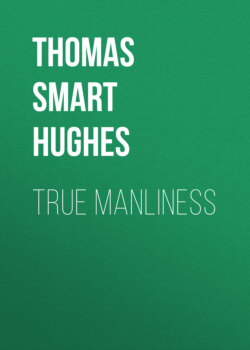Читать книгу True Manliness - Thomas Smart Hughes - Страница 21
На сайте Литреса книга снята с продажи.
XVIII.
ОглавлениеTable of Contents
“My father,” said Hardy, “is an old commander in the royal navy. He was a second cousin of Nelson’s Hardy, and that, I believe, was what led him into the navy, for he had no interest whatever of his own. It was a visit which Nelson’s Hardy, then a young lieutenant, paid to his relative, my grandfather, which decided my father, he has told me; but he always had a strong bent to sea, though he was a boy of very studious habits.
“However, those were times when brave men who knew and loved their profession couldn’t be overlooked, and my dear old father fought his way up step by step—not very fast, certainly, but still fast enough to keep him in heart about his chances in life.
“He was made commander towards the end of the war, and got a ship, in which he sailed with a convoy of merchantmen from Bristol. It was the last voyage he ever made in active service; but the Admiralty was so well satisfied with his conduct in it that they kept his ship in commission two years after peace was declared. And well they might be, for in the Spanish main he fought an action which lasted, on and off, for two days, with a French sloop-of-war, and a privateer, either of which ought to have been a match for him. But he had been with Vincent in the Arrow, and was not likely to think much of such small odds as that. At any rate, he beat them off, and not a prize could either of them make out of his convoy, though I believe his ship was never fit for anything afterwards, and was broken up as soon as she was out of commission. We have got her compasses, and the old flag which flew at the peak through the whole voyage, at home now. It was my father’s own flag, and his fancy to have it always flying. More than half the men were killed or badly hit—the dear old father among the rest. A ball took off part of his knee-cap, and he had to fight the last six hours of the action sitting in a chair on the quarter-deck; but he says it made the men fight better than when he was among them, seeing him sitting there sucking oranges.
“Well, he came home with a stiff leg. The Bristol merchants gave him the freedom of the city in a gold box, and a splendidly-mounted sword with an inscription on the blade, which hangs over the mantel-piece at home. When I first left home, I asked him to give me his old service-sword, which used to hang by the other, and he gave it me at once, though I was only a lad of seventeen, as he would give me his right eye, dear old father, which is the only one he has now; the other he lost from a cutlass-wound in a boarding party. There it hangs, and those are his epaulettes in the tin case. They used to be under my pillow before I had a room of my own, and many a cowardly down-hearted fit have they helped me to pull through; and many a mean act have they helped to keep me from doing. There they are always; and the sight of them brings home the dear old man to me as nothing else does, hardly even his letters. I must be a great scoundrel to go very wrong with such a father.
“Let’s see—where was I? Oh, yes; I remember. Well, my father got his box and sword, and some very handsome letters from several great men. We have them all in a book at home, and I know them by heart. The ones he values most are from Collinwood, and his old captain, Vincent, and from his cousin, Nelson’s Hardy, who didn’t come off very well himself after the war. But my poor old father never got another ship. For some time he went up every year to London, and was always, he says, very kindly received by the people in power, and often dined with one and another Lord of the Admiralty who had been an old mess-mate. But he was longing for employment, and it used to prey on him while he was in his prime to feel year after year slipping away and he still without a ship. But why should I abuse people and think it hard, when he doesn’t? ‘You see, Jack,’ he said to me the last time I spoke to him about it, ‘after all, I was a battered old hulk, lame and half-blind. So was Nelson, you’ll say; but every man isn’t a Nelson, my boy. And though I might think I could con or fight a ship as well as ever, I can’t say other folk who didn’t know me were wrong for not agreeing with me. Would you, now, Jack, appoint a lame and blind man to command your ship, if you had one?’ But he left off applying for work soon after he was fifty (I just remember the time), for he began to doubt then whether he was quite so fit to command a small vessel as a younger man; and though he had a much better chance after that of getting a ship (for William IV. came to the throne, who knew all about him), he never went near the Admiralty again. ‘God forbid,’ he said, ‘that his Majesty should take me if there’s a better man to be had.’ ”
